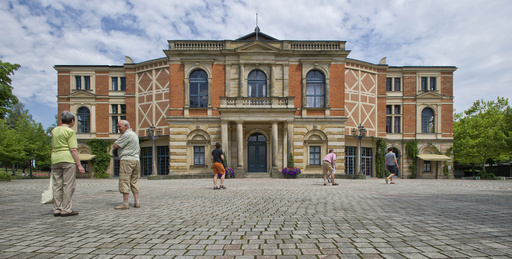The Bayreuth Festival has announced that it will be scaling back its 150th anniversary celebrations in 2026 by eliminating four productions due to budget constraints. This decision was made public on Thursday, with the festival attributing the cuts to the financial challenges posed by employee contracts in the public service sector and the inability to boost revenue streams. The festival currently covers about 55% of its expenses through self-financing.
This renowned German festival is dedicated to the works of composer Richard Wagner and is famously housed in a theater that was designed according to Wagner’s specifications. The festival is managed by his great-granddaughter, Katharina Wagner. The original plan for the anniversary season included staging all ten of Wagner’s mature operas, along with the festival’s first performance of “Rienzi,” which is considered one of his lesser-known works.
Due to rising labor costs, the festival’s schedule for 2026 will now feature only four productions: “Rienzi,” alongside the four-opera cycle “Der Ring des Nibelungen,” which marked the inception of the festival in 1876. It will also include Wagner’s final opera, “Parsifal,” which had its premiere in 1882 at the Bayreuth venue, and “Der Fliegende Holländer,” Wagner’s fourth opera, acknowledged as the first of his mature works.
The festival will not be proceeding with the planned revivals of “Tannhäuser,” “Lohengrin,” “Tristan und Isolde,” and “Die Meistersinger von Nürnberg” for the 2026 season. Additionally, the upcoming production of the Ring Cycle will be a special presentation and will differ from the Valentin Schwarz staging that first appeared in 2022, which is set to conclude its run in 2025. The festival intends to reveal the director for “Rienzi” in the summer and points out that 2026 will be the only occasion for this opera to be showcased.
As per the original schedule, the 2026 season will commence with Beethoven’s Ninth Symphony, a piece that was conducted by Wagner during the laying of the foundation stone for the festival in 1872 and later played at the reopening of Bayreuth in 1951 following World War II.
